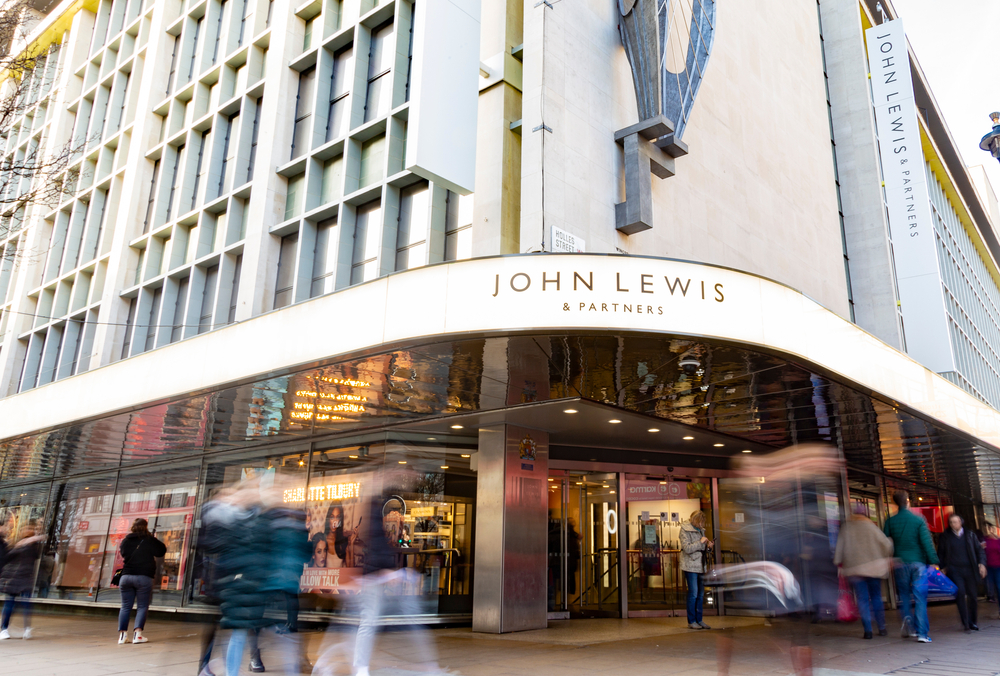The UK’s retail industry was suffering prior to the Covid-19 crisis, so it’s no surprise that the pandemic has caused the industry to go haywire in its wake.
With coronavirus cases continuing its steady decline and social life slowly coming back to normal, furloughed workers are now able to return to work part-time. However, the jobs many of them would be returning to have either changed immensely or disappeared all together, thanks to the economic impact of Covid-19.
The UK declared a lockdown on March 23 to control the pandemic, and while it seems to have helped the public health crisis, it still took its toll on the economy as a whole.
In the retail sector alone, at least 24,348 jobs have already been lost in the first half of the year, the Centre for Retail Research (CRR) revealed earlier this month. Many of the jobs were cut due to retailers filing for some form of insolvency, with the coronavirus lockdown triggering several big retail names to fall into administration or launch CVAs.

McKinsey & Company also found that around 7.6 million UK jobs are currently at risk of permanent layoffs, temporary furloughs, and reductions in hours and pay – with over four million of those jobs being in retail.
Last year was no better, as over 140,000 jobs were lost due to store closures and administrations, CRR found.
It may be problematic for retailers to just blame the administrations or general restructurings on the pandemic because before Covid was even on the horizon, retail was already diminishing. The likes of Laura Ashley, Debenhams, Cath Kidston, and several others collapsed in the early days of the pandemic, but these retailers were already under financial strain or in the midst of restructuring before pandemic gripped the UK in March.
When the UK Government imposed a nationwide lockdown on non-essential retail, uncertainty for the retail sector was at an all-time high, despite the furlough and tax support plus the one-year business rates holiday that were offered. March rents went largely unpaid as large numbers of retailers – including Primark, New Look and Frasers Group – called for a “rent holiday”.

The second half of the year for UK retail is already off to a rough start.
Menswear retailer and heritage shirtmaker TM Lewin announced it would shutter all its 66 stores to shift exclusively online – resulting in 600 job losses.
The pressures of Covid-19 became even clearer when Arcadia announced that 500 jobs would be cut at its Colegrave House head office in central London.
Harrods also announced 700 job cuts, White Stuff said it would make 390 layoffs, Burberry said it planned 500 redundancies, and John Lewis Partnership said it planned to make 1300 job cuts.
This week, M&S confirmed on Monday that 950 jobs are at risk as it plans to reduce store management and head office roles, and just today, reports have emerged that Asos had placed 500 of its customer care centre staff under consultation.
“Layoffs in the retail industry are likely to continue”
Fashion Retail Academy principal Lee Lucas told Retail Gazette that retail job layoffs were likely to continue post-Covid.
“As the government furlough scheme comes to an end and Christmas trading ceases, we will see an increased number of job cuts,” he explained.
“What’s vital moving forward is to figure out retrain and upskill those who are most likely to lose their job so that they have the skills that are in high demand.”
He added that it was too early to tell whether a “new normal” will come into action post-Covid, especially because there’s not really been a “normal” in retail for the past five or more years.
“It might take that long to see what the ‘new normal’ will be,” he said.
“The only thing that’s normal for retail is change, and the only thing that seems true is that those at the top need to be better at championing that, internal disruption should be the new normal.”
“Retail will always exist in one form or another, whether physically or digitally”
Peter Scott, head of retail consultancy at Graystone Strategy, said job seekers should continue their hunt despite the sector’s demise because “retail will always exist in one form or another, whether physically or digitally”.
“It has always been the most exciting environment to work in because it’s so varied with pace,” he said.
“It’s worth bearing in mind that there are still many successful retailers out there and these far out weigh the ones that are struggling.”
Scott added that Covid-19 accelerated the demise of many retailers. Evidently, some were already finding trading a challenge, but the pandemic has resulted in many retailers evaluating how they operate and what their digital proposition is.
“Retailers are also looking at whether they have efficient head offices and as a consequence we are seeing many restructuring programmes,” he said.
As a result of growing ecommerce competition, physical store sales have been at a decline for years. The pandemic serves as a warning that retail is changing and survival depends on retailers adapting and whether they offer an in-store experience which ecommerce cannot compete with.
Also, for retailers to draft in further store colleagues during a pandemic, they may need to introduce a shorter working week to lessen fears, as a career in retail may not seem like the most appealing proposition at this current time.
Click here to sign up to Retail Gazette’s free daily email newsletter


















